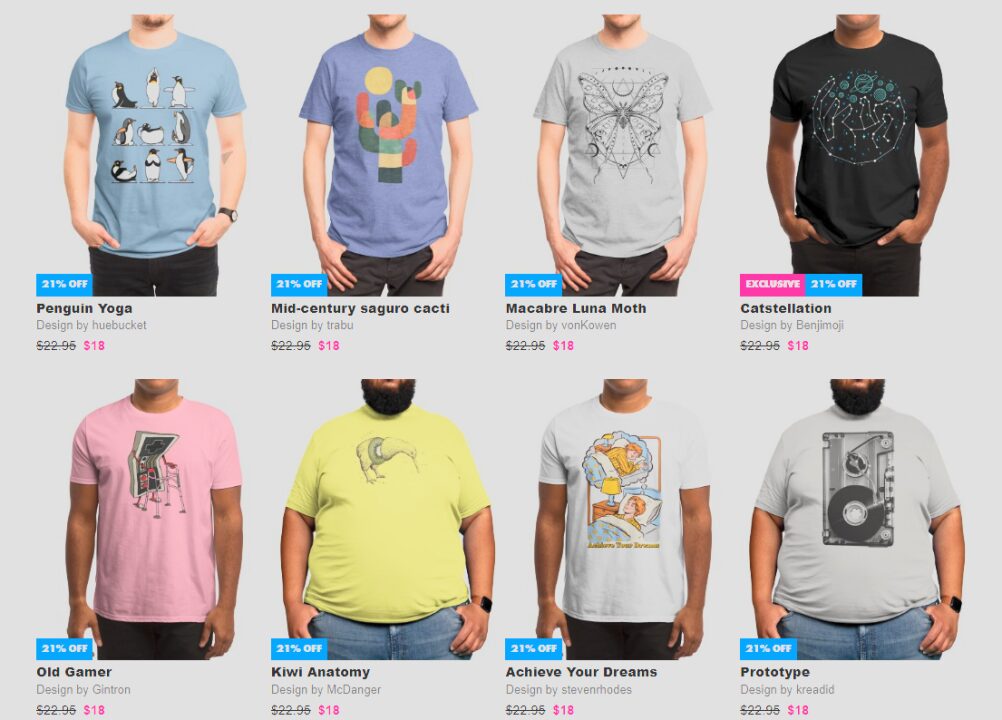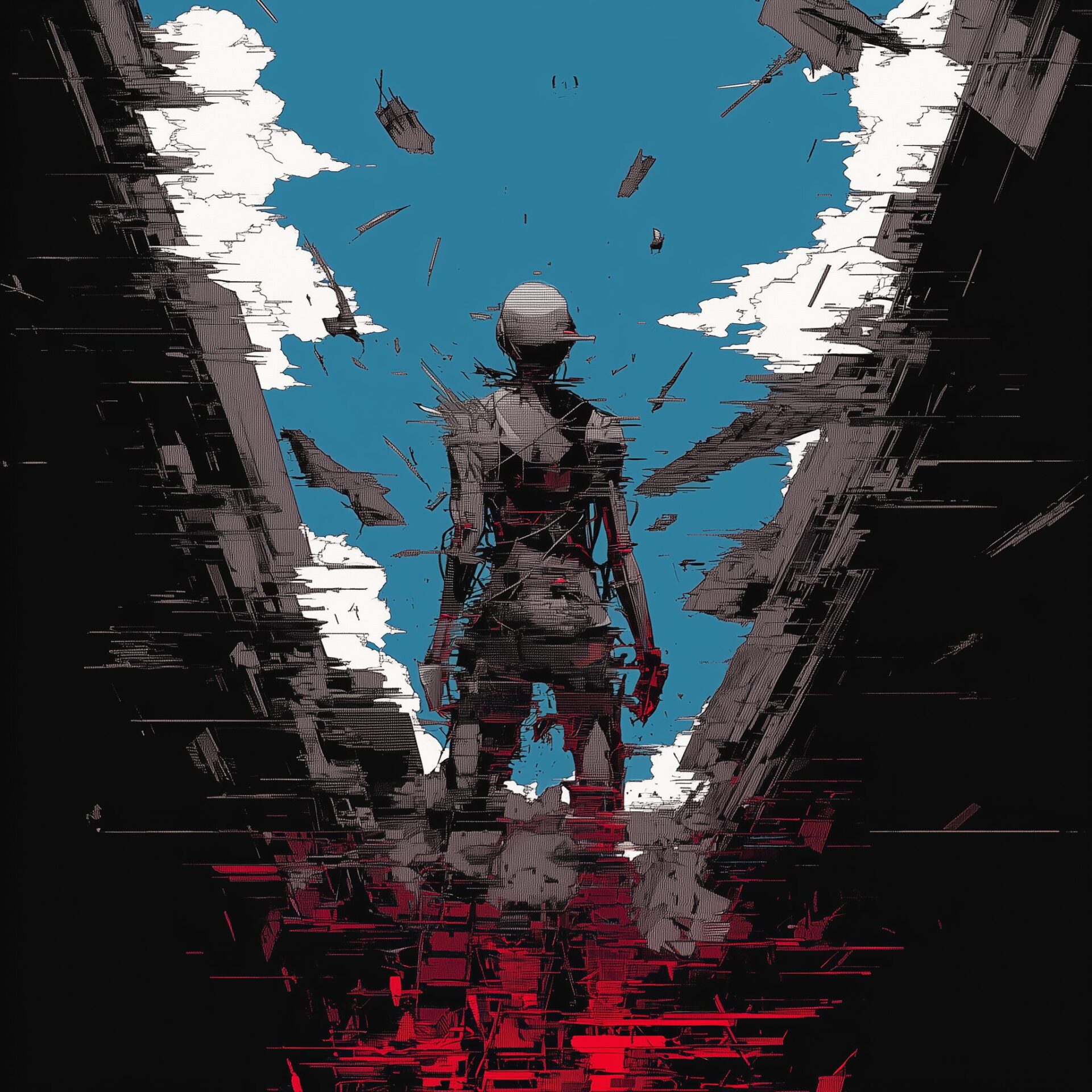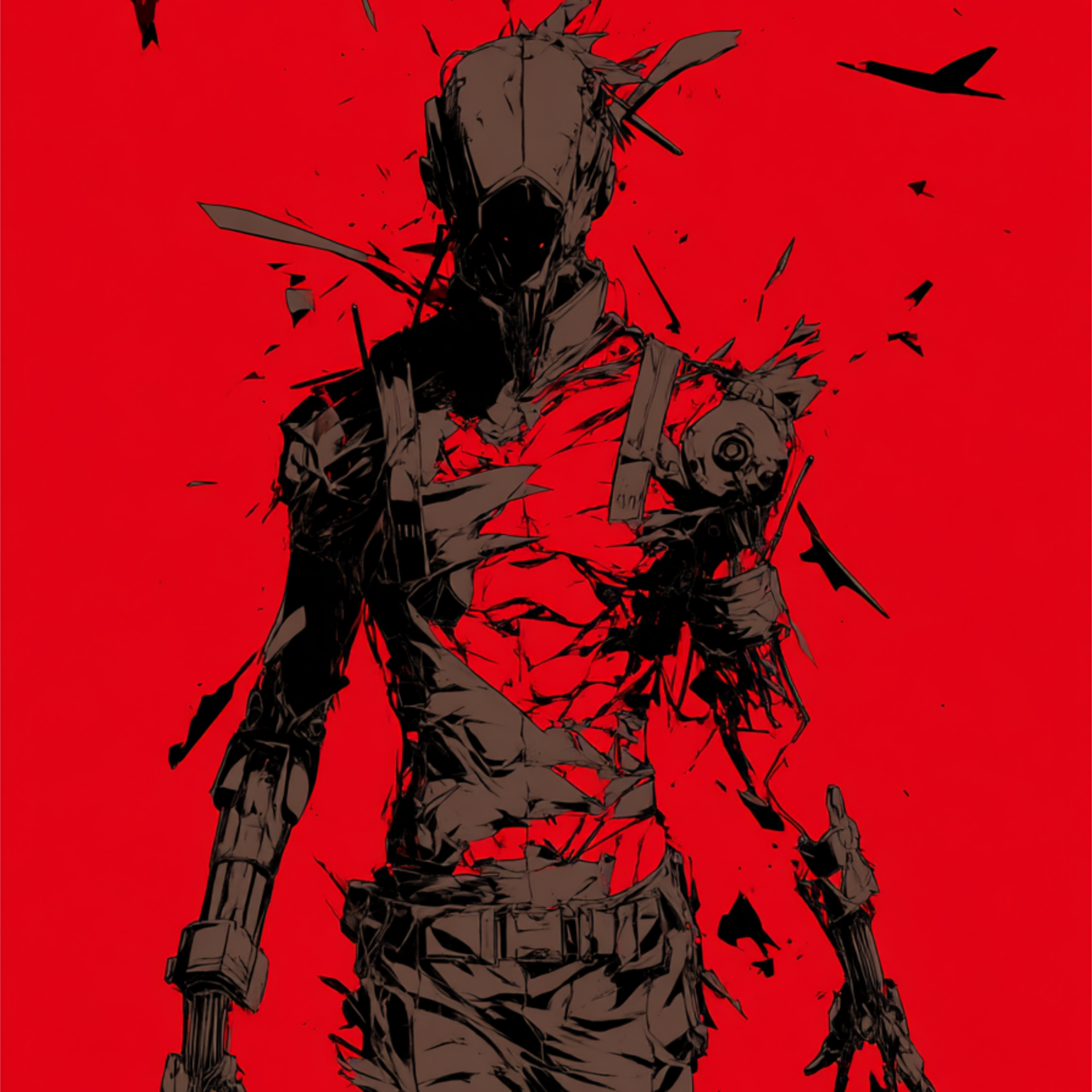T-Shirt Design is Peak Art
I currently own a t-shirt or 99 in various shades of red or black. You might say I am a t-shirt snob, and if you did, I would bite my thumb at you. Or at least, I’d have a shirt design that would do that for me.
With every free waking moment, I’m surfing page by page of designer shirt websites looking for a new look that catches my eye. With all the different options, this process can suck up an entire weekend. You’ll often find me trolling through Threadless or Design by Humans, ready to burn a hole in my wallet once again.
Designers from various backgrounds bring their unique perspectives to this wearable artboard, transforming ordinary garments into pieces of art that communicate, provoke, and inspire. Although most of my shirts are less inspiring and more… edgy? I guess I’ve turned emo in my old age.

I really respect someone who can take a creative idea and compact it into an entirely limiting canvas. I’ve tried my hand at shirt design, and I definitely discover my technical limits when working on them (but you can totally look at my stuff if you want on Etsy here lulz).
Business Behind the Scenes
The other day, a t-shirt store popped up in the commercial space of our condominium that got me thinking more about selling shirts themselves rather than the design process. How does a place like this just show up overnight? Were they some sort of t-shirt hoarder and their friends had an intervention? “Sorry Phil, but something must be done about your seven boxes of Van Halen shirts.”
After a bit of interneting, I think I figured it out. Although what I found sounds more like gambling than ecommerce, but I digress.
In the headline of this article, I mentioned “gatcha.” Many gaming nerds know what this is, but I think it requires a definition for those not as well versed in vidya lore. Gatcha (term originates from Japan) is a randomized mechanic often used in video games and vending machines where you go in with a chance of getting something awesome! Or! It could be crap!
You won’t know until you pull that lever whether you made a brilliant decision, or you’re just a degenerate gambler.
Similarly, many entrepreneurs venture into the t-shirt business by tapping into the world of wholesale buying, where bulk purchases offer a mix of potential hits and misses. This "gatcha" approach to inventory acquisition is akin to a treasure hunt, where the prize is often hidden beneath layers of uncertainty.
Wholesalers will often bundle shirt designs by topic area, in case the starving entrepreneur would prefer nuance in the wares sold. Topics range from professional sports to music bands, but the real money is in (of course) the world of wrestling. And the banana stand. These are not serious comments, please do not buy a bunch of wrestling shirts, I beg of you.
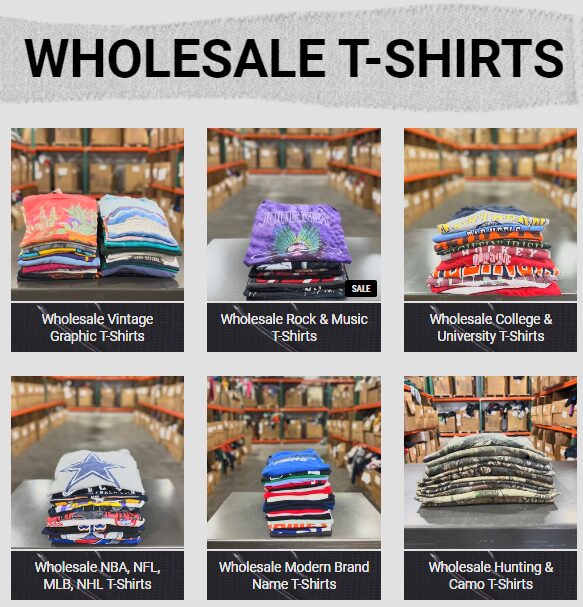
Platforms like Thrift Vintage Fashion provide a gateway to this world, offering mystery boxes of shirts where the value lies not just in the fabric, but in the potential for a unique find. Shop owners invest with the hope that among the multitude, there will be designs that resonate, that stand out, that tell a story. That don’t have pit stains.
Marketplace Melee: Selling the Unsung Shirts
This is the part of the journey I hadn’t really thought about until this weekend.
My friends and I were enjoying auctions at this website I’d never heard of before called Whatnot, which mixes the livestream aspect of Twitch with the reselling of random stuff like eBay. I’m not talking about one or two t-shirt live auctions. Think more like 25 or more.
Each seller would have some interesting shirts and then some reaaaally bad ones. At one point, a seller was hawking Cancun tourism shirts and Bubba Gump hats. After watching a few streams, you’ll find some commonalities between the auctions, with almost ever item a “banger” and the seller claiming shirts are “single stitched” as if that’s a good thing.
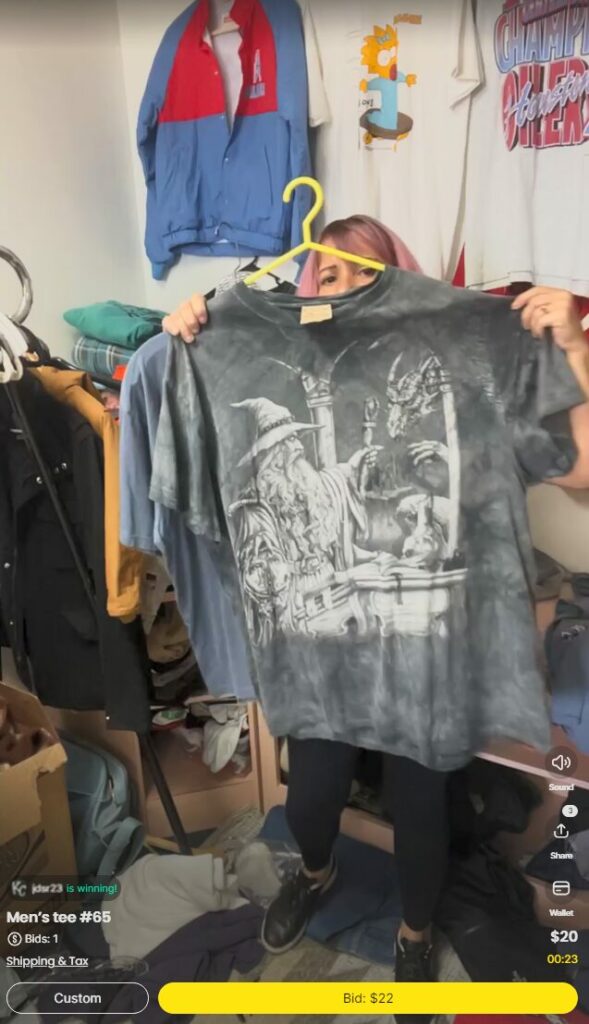
So what’s going on here? I have my thoughts, and I believe this also applies to eBay.
Websites like Whatnot and eBay become stage performances, where every shirt, no matter how outlandish or ordinary, gets its moment in the spotlight. These sellers act as hype men for all the terrible shirts that can’t sell themselves. Sellers employ a blend of marketing savvy and sheer enthusiasm to position their products, even if no person on earth wants a “Supreme” shirt that is hilariously spelled “Surpreme.”
What’s even more wild, online selling is a realm where the perceived value of a t-shirt can skyrocket based on the seller's pitch. A shirt deemed unremarkable in one context might be portrayed as the next must-have item in another, showcasing the subjective nature of value and appeal in the fashion world.
While we were watching one Whatnot, a limited Spiderman shirt sold for… $300…. People, please be more careful with your money. But this IS a testament to the power of presentation, where a compelling story or a charismatic sell can turn the "terrible" into the terrific. At least, for some quirky individual.
I don’t see myself venturing into this gatcha-then-sell tactic. Let’s presume you’re paying $7 per wholesale shirt, and you usually pull $15-20 on normal shirts waiting for your White Whale to sell for a high price, how many shirts do you have to sell to make it worth your time?
Sounds awful, but maybe someone out there disagrees and is currently buying a gross of Harley Davidson shirts. I’ll stick to paying the man for specific, clever shirts and (occasionally) designing my own in attempt to be cool like all those other Threadless designers.
We can all dream.
